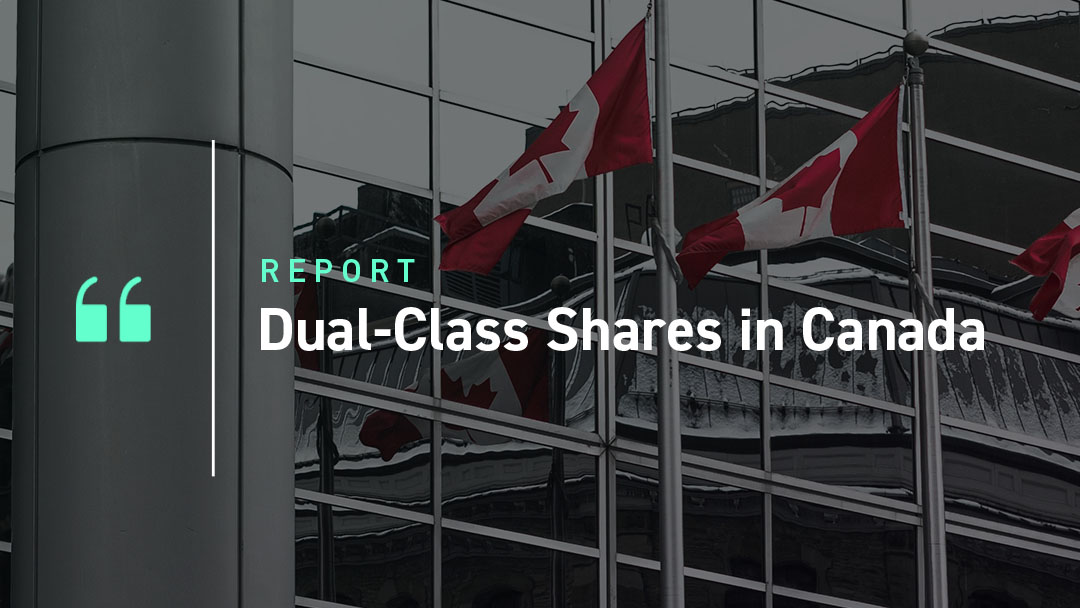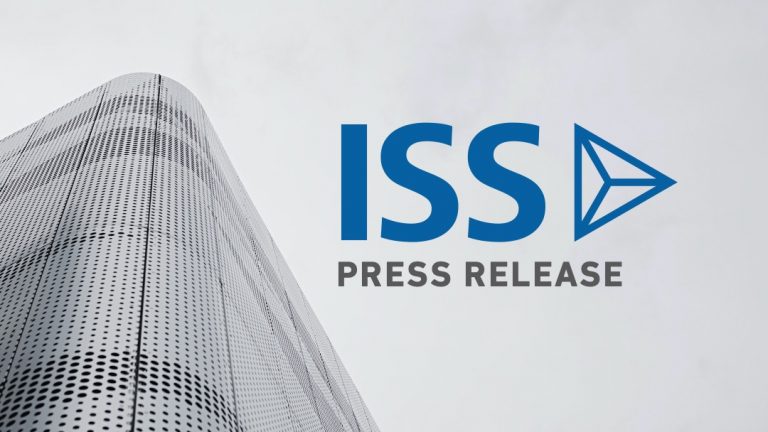Is Rogers Communications the latest canary in the coal mine of dual-class controlled companies?
Canada has over 100 dual-class controlled public companies with unequal voting rights at last count in the ISS Canadian coverage universe. Of these, 66 are TSX-listed companies. In 1987 there was shareholder rebellion over a bid for 49 percent of the voting shares held by the controlling Billes family at Canadian Tire Corporation, as this circumvented a by-law coattail only triggered on acquisition of more than fifty percent control and shut out non-voting shareholders. Subsequently, the TSX mandated that newly listed TSX companies have coattail protections for minority shareholders of dual-class companies. The required coattail protection would ensure that the subordinate class of shareholders share equally in any offer for the superior class common equity, often multiple voting. Despite this, a number of established dual-class companies were grandfathered in.
However, as we have seen over several decades, dual-class controlled companies also subject minority shareholders to other risks including executive compensation concerns, dual-class structure collapse premiums, leadership transition concerns, and most recently family in-fighting over control of the board and company strategy.
ISS has highlighted some of these concerns over the years. In 2007, Four Seasons Hotels was privatized and Kingdom Hotels International and Cascade Investment, L.L.C., subsequently acquired all of Four Seasons’ Limited Voting Shares (one vote per share) for cash consideration by way of a Plan of Arrangement. Of the Variable Multiple Voting Shares, amounting to 16.15 votes per share, 100 percent were owned by company founder, Chairman and CEO, Isadore Sharp. These supervoting shares were exchanged for shares of the Purchaser resulting in a five percent equity stake in the newly privatized Four Seasons. Sharp would also keep his job as Chairman and CEO for an initial term of five years. Some investors may have balked at the appropriateness of the US$289 million payment made to Sharp under the Four Seasons long-term incentive plan as per the terms of the deal.
A somewhat similar situation evolved in 2012 when Astral Media was purchased by BCE. The Greenberg family, by means of a dual-class share structure controlled approximately 64% of the votes with a total equity interest of only 2.8% in Astral. The controlling shareholders negotiated an extraordinarily high premium for their Special Shares worth 10 votes per share; this equated to roughly $769.00 per share. The $50.00 and $54.83 per share offers for CI A non-voting and Cl B subordinate voting shares, respectively, did not reflect the 1:1 exchange ratio established for conversion in such circumstances. Interpolating the 10 votes per share premium, or discount, between the Special Shares and the Cl A voting shares would result in a consideration of $548.00 per Cl A share compared to the $769.00 offered for the Special Shares. In addition to the huge premium on the controlling shares, the Astral shareholder meeting was extraordinary in that the board provided shareholders with a binding vote on a proposed special bonus of $25 million to then CEO Ian Greenberg in addition to change of control payments, incentive performance payments and his share of the deal premium. Ultimately, this resolution did not pass.
The challenges of negotiating under a dual-class share structure with a controlling founder gained extensive media coverage during the collapse of the unequal voting structure at Magna International in 2010. Founder, Chairman and CEO Frank Stronach controlled Magna via his holdings of Cl B multiple voting shares amounting to 300 votes per share. Shareholders were asked to approve an incredible cost to unwind the superior voting rights attached to the Class B shares held by Stronach. In the aggregate this appeared to value the superior voting rights at a figure just shy of $1,200 per share or over 18 times more expensive than the Class A share on a per share basis). This proposal was further complicated by the lack of formal valuation or recommendations to shareholders by neither the special committee nor the board of directors. Shareholders were forced to decide whether the cost of unwinding the share structure outweighed the considerable benefits as highlighted in the ISS meeting analysis.
Shareholders of Bombardier Inc. were also faced with some tough voting decisions at the 2017 shareholders’ meeting, whilst executive compensation concerns resurfaced. The company was controlled through a dual-class share structure by the Bombardier family who held 53% of the voting power and a total equity stake of approximately 13%. Faced with rising shareholder and public ire over government bailouts, mass layoffs and concerns about executive compensation on April 10, 2017, the company announced amendments to previously disclosed executive compensation packages. Public criticism was directed toward initial disclosures of approximately $32.7 million in pay awarded to the top six NEOs. This was amidst roughly $1.4 billion in received or expected government funding initiatives to the company’s businesses and projects from the Quebec and Federal governments and an expected headcount reduction of approximately 14,500 positions over two to three years. The ISS meeting analysis also highlighted that pursuant to the amendments, Executive Chairman and former CEO Beaudoin’s total compensation was decreased from $5.3 million to his 2015 levels of $3.9 million via reductions in his bonus of $100,000 and equal decreases in both his stock option awards and PSU awards by $652,300, respectively. With respect to all NEOs, including the CEO, the vesting period for stock options granted in August 2016 were extended for an additional year (year 2020 rather than 2019) and the evaluation period for PSUs was also extended by one year, ending in 2019 rather than in 2018. These pay moderations, in addition to a one-year turn-around in total shareholder return after the first year of the new five-year strategic plan, seemed to placate many shareholders – however the situation still called into question the controlling shareholders’ oversight of minority shareholder interests in the absence of extremely public outcry.
The latest example is the drama that unfolded in 2021 at Rogers Communications as Edward Rogers, the son of the late founder Ted Rogers, attempted to unseat multiple directors and fire the CEO. The courts have now ruled in favour of his ability to do so. Members of the prior board of directors, including his mother and siblings, publicly opposed him, garnering intense media scrutiny. The Rogers family controls 97% of the votes with only 29% of the common equity through the Rogers family Trust. Under the company’s dual-class capital structure, their Class A voting shares amount to 50 votes per share. The Non-Voting shares are held by outside investors.
There is never a good time for an upheaval like the one witnessed at Rogers but this is especially inopportune given the company’s efforts to close during the first half of 2022 its purchase of Shaw Communications.
This raised significant questions for shareholders once again with respect to the corporate governance risks of investing in a dual-class controlled company. That is, specifically, where controlling insiders hold voting control without holding a matching equity interest in the company and in some cases where the controlling insiders may be the children or other relatives of the controlling founder and have very different visions for strategy and future direction. Shareholders may wonder how effective independent board members can be when things go wrong under such a structure, particularly if independent directors can be removed and replaced by the controlling shareholder. Additionally, considering the importance of independent legal advice in the case of a protracted power struggle, why and to what extent should shareholders foot the bill? Are outsized controlling insider payouts acceptable in the event of a sale of the company or privatization given previous compensation decisions over years of controlling insider leadership? Are acquisition considerations made by controlling insiders shared equitably based on actual share ownership and not voting premium?
According to the 2021 ISS Global Policy Survey, 94 percent of investors responded in the affirmative to the following question:
Since 2015, ISS policy for the U.S. has been to recommend votes against directors of newly-public companies that have certain poor governance provisions, such as multiple classes of stock with unequal voting rights without a reasonable sunset to the structure, a classified board structure, or supermajority vote requirements to amend governing documents. However, companies that became public prior to the 2015 ISS policy change were grandfathered (exempted from the policy), and no negative ISS vote recommendations for these provisions have been issued at such companies.
In your opinion, for the companies with poor governance structures that were previously grandfathered, should ISS revisit these problematic provisions and consider issuing adverse voting recommendations in the future where they still exist? (i.e., at companies that still maintain these poor governance provisions?)
Sunsets on dual-class share capital structures, that require a collapse of the dual-class structure triggered by certain events or after an established period of time, are still not the norm in Canada. There are still a number of dual-class companies grandfathered under the TSX coattail requirement as reported in the ISS Canada 2020 Pre-Season Preview.
By Debra Sisti, Senior Governance Advisor, ISS Governance Research



